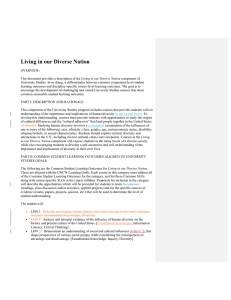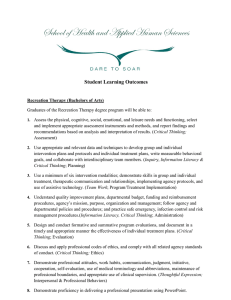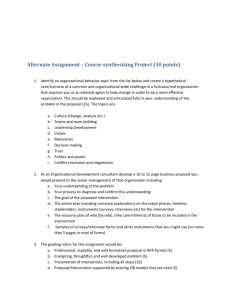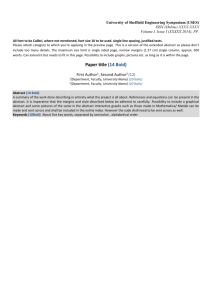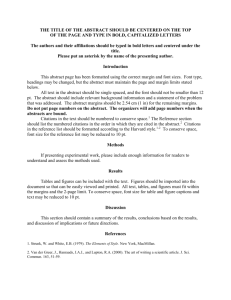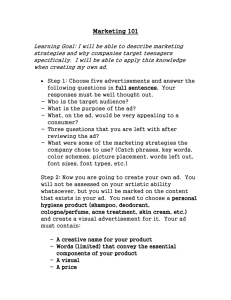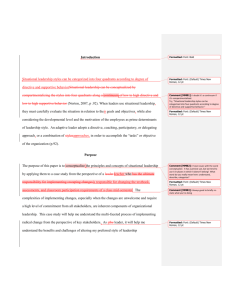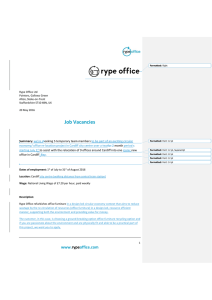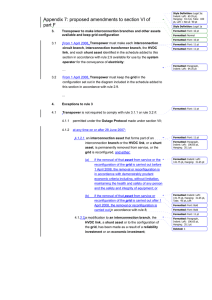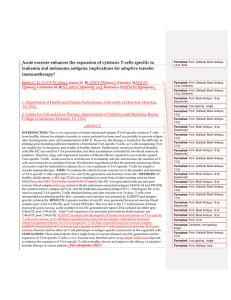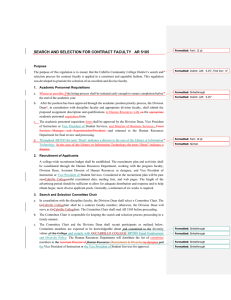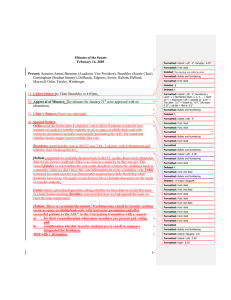Writing Intensive Course OVERVIEW:
advertisement
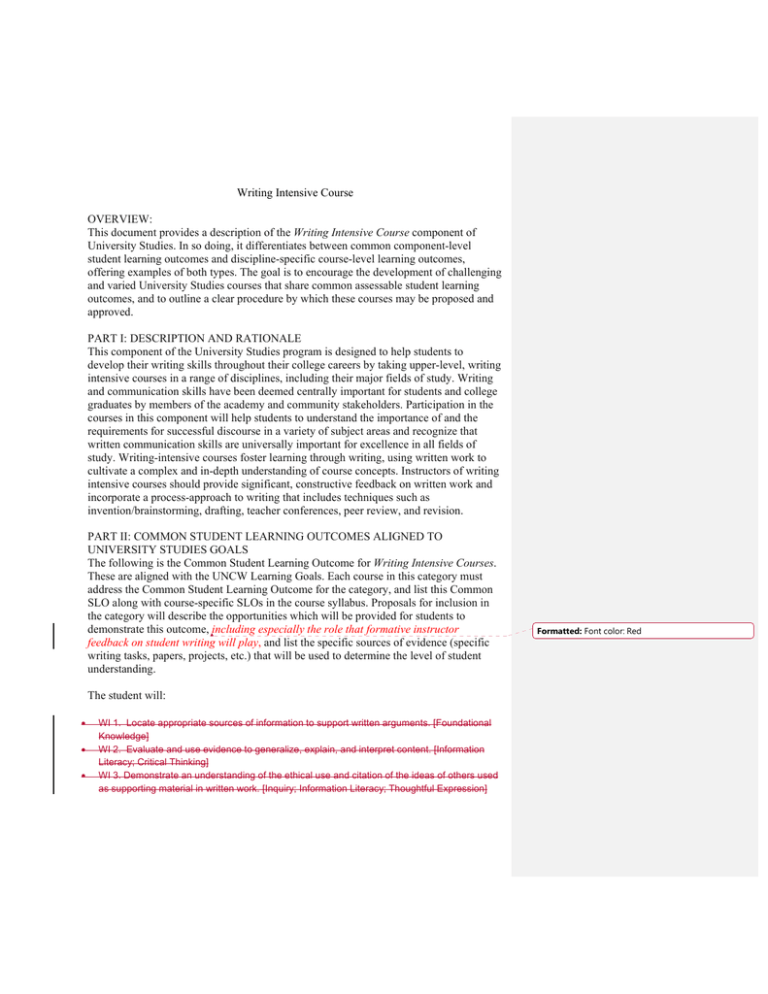
Writing Intensive Course OVERVIEW: This document provides a description of the Writing Intensive Course component of University Studies. In so doing, it differentiates between common component-level student learning outcomes and discipline-specific course-level learning outcomes, offering examples of both types. The goal is to encourage the development of challenging and varied University Studies courses that share common assessable student learning outcomes, and to outline a clear procedure by which these courses may be proposed and approved. PART I: DESCRIPTION AND RATIONALE This component of the University Studies program is designed to help students to develop their writing skills throughout their college careers by taking upper-level, writing intensive courses in a range of disciplines, including their major fields of study. Writing and communication skills have been deemed centrally important for students and college graduates by members of the academy and community stakeholders. Participation in the courses in this component will help students to understand the importance of and the requirements for successful discourse in a variety of subject areas and recognize that written communication skills are universally important for excellence in all fields of study. Writing-intensive courses foster learning through writing, using written work to cultivate a complex and in-depth understanding of course concepts. Instructors of writing intensive courses should provide significant, constructive feedback on written work and incorporate a process-approach to writing that includes techniques such as invention/brainstorming, drafting, teacher conferences, peer review, and revision. PART II: COMMON STUDENT LEARNING OUTCOMES ALIGNED TO UNIVERSITY STUDIES GOALS The following is the Common Student Learning Outcome for Writing Intensive Courses. These are aligned with the UNCW Learning Goals. Each course in this category must address the Common Student Learning Outcome for the category, and list this Common SLO along with course-specific SLOs in the course syllabus. Proposals for inclusion in the category will describe the opportunities which will be provided for students to demonstrate this outcome, including especially the role that formative instructor feedback on student writing will play, and list the specific sources of evidence (specific writing tasks, papers, projects, etc.) that will be used to determine the level of student understanding. The student will: WI 1. Locate appropriate sources of information to support written arguments. [Foundational Knowledge] WI 2. Evaluate and use evidence to generalize, explain, and interpret content. [Information Literacy; Critical Thinking] WI 3. Demonstrate an understanding of the ethical use and citation of the ideas of others used as supporting material in written work. [Inquiry; Information Literacy; Thoughtful Expression] Formatted: Font color: Red WI 4. Demonstrate the ability to write critically, using the conventions of the discipline covered in the course. [Critical Thinking; Thoughtful Expression] WI 5. Analyze and evaluate the claims, arguments, and theories presented course materials using appropriate methods (such as logical analysis and the identification of fallacies). [Foundational Knowledge; Information Literacy; Critical Thinking; Thoughtful Expression]. • WI 1. Demonstratetheabilitytoemployaniterativewritingprocess(suchas invention,drafting,reviewingandrevisinginaccordancewithinstructor feedback)usingtheconventionsofthedisciplinecoveredinthecourse,to completeamajorprojectoraseriesofassignments. [Critical Thinking; Thoughtful Expression] Formatted: Font: Not Italic Formatted: Font: Not Italic PART III: STUDENT COMPLETION REQUIREMENTS Students are required to take nine hours from this component, with at least three hours at the 300-400 level and at least three hours in the major. Formatted: Font color: Red
